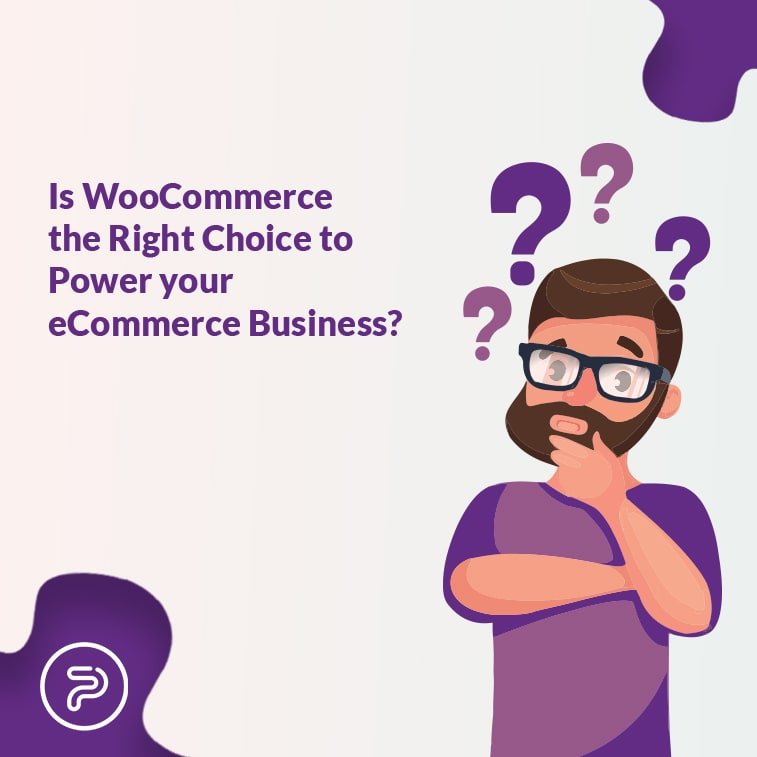When running an online store, business owners often wonder if the e-commerce platform they’re currently using is up to par with their potential and needs. While it’s safe to say that the vast majority of these platforms are more or less great for most businesses, in some cases, it can be difficult to get the one that meets your business’s needs the most.
As you probably know, WooCommerce is one of the most popular platforms for online stores, powering nearly one-third of them. As such a prominent player in the field, it’s only logical for business owners to assess if using the plugin is worth their time and effort.
The pros of WooCommerce
With such a high user-rate, it’s safe to say that WooCommerce clearly holds a lot of different benefits and chances are, it will fit your business needs right out of the box.
So, without further ado, here are the major advantages of using WooCommerce for your online store.
WordPress
WooCommerce is basically a plugin that you install in your WordPress site’s subdirectory. This makes turning your website to an e-Commerce site a walk in the park, with a simple, step-by-step setup that will get your website ready automatically. On the other hand, you can also set it up manually if you have the necessary developer-chops for the job.
When you’re done with the setup, simply add products (the same way you’d add posts or pages to any WP site) and descriptions. When you’re all done with that, all you have to do is to make those sweet sales.
Another huge benefit of using WooCommerce is the ease of managing both your store and site from the same dashboard. The jump from updating your product page to writing a blog post is simultaneous, which makes WooCommere a unique plugin in its weight class.
It’s free
If something’s free of charge it doesn’t automatically mean that it will be of any good use for you, however, when it is, it can totally be a major advantage. That’s exactly the case with WooCommerce since both installation and usage are totally free.
This can work fine for smaller businesses or for those companies who don’t solely focus on retail, but it can also be applicable for larger e-stores as well.
SEO-friendly
It’s one thing to have a site that handles selling and buying well but in order to get out the most what you have to offer, you also have to have a site that search engines can easily find.
Having an SEO-friendly site with WooCommerce isn’t really an issue since it maintains all the optimized and customizable features as any other WordPress site has (editing body content, meta descriptions, alt tags, URLs, and other elements).
With the plugin, optimizing pages is a simple process even if you’re pretty unfamiliar with coding, however, it will still require the basic keyword research and copywriting skills, but putting your content where it needs to be is pretty simple.
The disadvantages
Even though WooCommerce is immensely popular among online merchants, it’s not without drawbacks, and here’s what you need to know about them.
Lacks theme support
More precisely, the plugin isn’t supported by every single WP theme. There may be some compatibility issues and changing the look of your site can be a hassle if you still wish to use the plugin.
This can be a huge disadvantage since it can delay the launch of your online store and can cause dramatic changes in the visual identity of your brand.
Paid extensions
While it’s true that the plugin is free to use and free to install, there are also quite a few extensions that are not free. The only problem with these is the fact that some of them are basically quintessential for today’s e-Commerce standards (like having PayPal as a default payment option).
In most cases, you can live without the majority of these extensions, although they can be really useful, especially when your business starts to take off. Extensions for inventory management, reporting, marketing, and subscription services can help you a great deal with your marketing efforts, so in the end, you’ll end up purchasing them anyway.
And if that’s the situation, why not put a price tag on WooCommerce from the start? Some business owners might get frustrated and turn away from the plugin simply because they’d rather pay for something fully compact from the start then mess around with extensions later on.
Can be less advanced than dedicated counterparts
WooCommerce is not a platform, but a plugin that transforms your existing website into a virtual storefront. That being said, it can still lack some of the key features that dedicated e-Commerce platforms offer. Not being able to use multiple currencies and languages were known issues in the past.
WordPress is constantly working on new extensions to keep up with everything the dedicated platforms have to offer, but the extensions aren’t free which again, can cause additional frustration for some users.
If it’s not broken, don’t fix it
With WooCommerce, setting up, running and managing your online store is entirely your responsibility. And while this is also true for some of the other major e-commerce platforms out there, it’s always good to know that you at least have a dedicated team at the development company who can help you out if things go south.
And because WordPress is constantly working on updates and even better features, and as you also continue to change your online store, there’s always a chance that something will break on your website. And if you don’t know the first thing about coding, chances are, you’ll need professional help to get your site back up and running.
There’s indeed a huge online community out there who can help you resolve simple issues but it can get frustrating, especially if you don’t have a dedicated support team to help you out.
Putting it all together
If you’re running a small business and also thinking about selling a few products online with the help of your WordPress website, installing WooCommerce is a self-explanatory step. It’s easy to use, it’s convenient, and with the basic features, it’s free. It’s also optimized for SEO, meaning that online visibility won’t be a problem.
Your site will still have the general WordPress features, meaning that you’ll still be able to create blog posts and other things in the same convenient fashion you did before, plus you’ll have the added benefit of being able to sell your products.
On the other hand, without reliable support, things can get pretty harsh, especially if you have no experience in the basics of coding. It’s true that WordPress has huge resources when it comes to troubleshooting, however, most business owners would rather focus on their brand and customers than hassle with broken pages and codes.
The other letdown might be the part with the paid extensions. Don’t get us wrong, they’re not entirely essential for closing sales online, but if you are thinking about scaling your business and let your customers use the latest and most convenient features, chances are, you’ll have to get at least some of those extensions.
For most users, the problem isn’t the price tag. It’s more the chore-like nature of adding extensions, payment and so on. Maybe they’d rather get the full package for a certain price than having to hunt down the essential extensions.
Also, WooCommerce is a plugin, not a dedicated platform, meaning that it will be missing some features that are essential for certain businesses, so it’s better to assess what WooCommerce can give you and what you actually need for your online store.
Finally, WooCommerce may be an ideal route to take. Maybe its features are all you need, take or give a few extensions. Maybe you can even scale your business with it successfully. It may even prove to be something that you’ll use for a while then get a dedicated platform. It all depends on your current needs and the on the pace your business grows and the features you’d like to implement along the way.
All in all, WooComerce is a great plugin and it’s definitely worth checking out.





